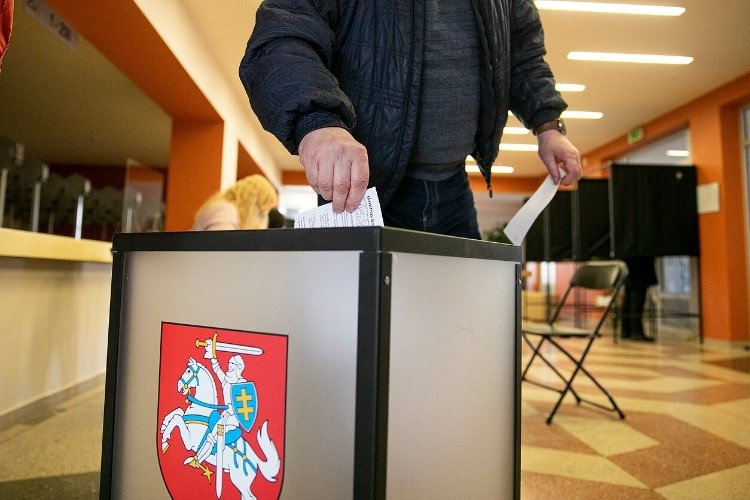Guide to Lithuania: foreigners’ rights in local elections
NEWS INFORMATION
Municipal governance oversees a number of areas that play an important part in our daily lives, like education, infrastructure and transportation, waste management, housing and much more.
Voting in municipal elections is a fundamental right and civic duty for all residents who meet the eligibility criteria, regardless of their nationality. It’s an important way to have your say in the democratic process and contribute to the common good of the community. So, let’s dive in and find out exactly how the process occurs!
Getting involved
Municipal elections play a crucial role in determining the direction of a city's development and addressing the issues facing the community, such as transportation, housing, environmental sustainability and economic growth.
While voting in other Lithuanian elections (Presidential, Seimas) is limited to citizens of the country, municipal elections in Lithuania stand out for being open to local foreigners, who can vote and even run as candidates.
Giving foreigners the right to be fully involved in the municipal agenda has proven to be an efficient way for them to integrate and feel more connected within the community. By engaging in local politics, foreigners can learn more about the issues facing their municipality, meet other residents who share their concerns and gain insight into the institutions and structures that govern their daily lives.
Grounds for voting and running for office
The age requirement to vote and run a political campaign varies; for municipal elections the voting age is 18 and the minimum age to run for election is 20.
In Lithuania, European Union citizens who have the right to live in the country are entitled to vote in municipal elections. This right is granted to:
- foreigners with a permanent residence permit in Lithuania. To qualify for a permanent residence permit, individuals must have lived continuously in Lithuania for the past five years or have come to live with a Lithuanian citizen as a member of their family.
- EU citizens who have been issued a temporary residence certificate, residence permit card of a family member of an EU citizen or similar documentation.
Please note, only a permanent resident of a municipality has the right to vote and run, meaning a person must have their place of residency declared no less than 60 days prior to elections.
Looking for information and getting hands on
Municipal Council Elections have two separate ballots – one for the council and another for the mayor. The first round of an election occurs on 5 March and the second one is exactly two weeks later.
The Central Electoral Commission (CEC) is an independent institution responsible for organising and conducting national and local elections in the Republic of Lithuania. Its main objective is to ensure that elections are free, fair and transparent. Moreover, CEC functions also include organising the voting process, counting ballots and announcing election results and educating voters about their rights and responsibilities.
All voters can vote once for their candidates at two different times. Not many know that despite 5 March being the official election day, votes can be cast early on 28 February and 1-2 March from 7AM to 8PM. Voters can vote at the municipal building or designated polling stations provided by the city and standing closest to their declared places of residency.
Election results are usually announced the same night after voting closes (8PM), but it may be possible that there are not enough votes to elect a mayor (which is the head of a council) on the first go. In these cases, another round of voting is held exactly two weeks later.
To find all the information about the candidates and select your representative, please visit the CEC website.
If you have any questions about upcoming elections, please don’t hesitate to contact the CEC Election Organisation Unit: https://www.vrk.lt/en/kontaktai
Find more information about the Elections to Municipal Councils on 5 March 2023 in English: https://www.rinkejopuslapis.lt/kandidatu-sarasu-iskelimo-paremimas47
Don’t forget your passport and see you at the polling stations!


